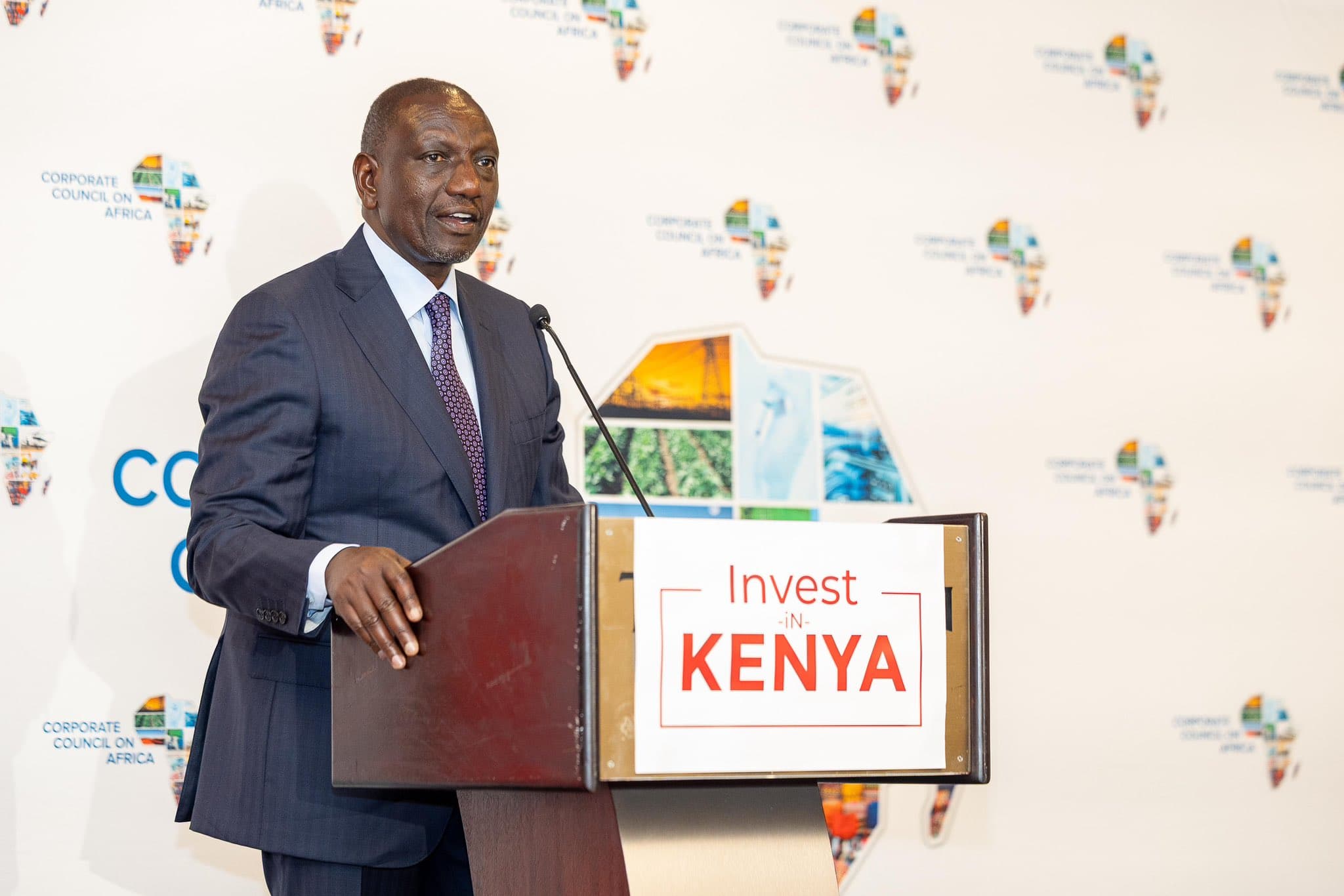We're loading the full news article for you. This includes the article content, images, author information, and related articles.
Nairobi, Kenya – President William Ruto has positioned Kenya as a top investment destination in Africa, highlighting its new ranking as the continent’s sixth-largest economy and stressing the stability that global investors can rely on.

Nairobi, Kenya — September 23, 2025, 21:30 EAT.
President William Ruto has declared Kenya open for business, touting its stability, expanding economy, and strategic partnerships as reasons why investors should view it as Africa’s premier investment destination.
Speaking at the US-Kenya Business and Investment Roundtable held on the sidelines of the 80th United Nations General Assembly (UNGA) in New York, Ruto highlighted Kenya’s recent ranking as the sixth-largest economy in Africa, overtaking Angola and Morocco.
“We seek to further deepen and expand the already robust partnership between Kenya and the United States of America with new business and investment opportunities,” he said, addressing CEOs of leading US multinationals across tech, finance, agriculture, and energy.
Ruto assured global investors of Kenya’s political stability, pro-business reforms, and regional connectivity as key pillars for attracting foreign direct investment (FDI).
Kenya–US Trade Relations: The US remains Kenya’s largest export market, buying goods worth USD 890 million in 2024, including apparel, coffee, and titanium.
Africa Growth and Opportunity Act (AGOA): Kenya is lobbying for an AGOA extension beyond its 2025 expiry to protect tens of thousands of jobs in the textile sector.
Infrastructure & Reforms: Kenya has launched major projects, including the Mombasa Special Economic Zone, Nairobi Expressway, and ongoing energy transition initiatives, to attract global manufacturers and green investors.
Public–Private Partnerships Act, 2022: Enables private sector financing of infrastructure projects.
Investment Promotion Act: Offers tax incentives and investor protection guarantees for foreign companies.
Trade Negotiations: Nairobi and Washington are finalizing the US–Kenya Strategic Trade and Investment Partnership (STIP) aimed at reducing tariffs and harmonizing standards.
President William Ruto: “Kenya offers a stable macroeconomic environment, a young skilled workforce, and access to a 1.4 billion-person African Continental Free Trade Area (AfCFTA) market.”
US Ambassador Meg Whitman: Previously called Kenya “the most stable democracy in East Africa”, citing opportunities in fintech, renewable energy, and agribusiness.
Kenya Private Sector Alliance (KEPSA): Urged the government to accelerate reforms in tax administration, logistics, and energy pricing to make Kenya more competitive.
Kenya GDP 2024: USD 117 billion, World Bank data.
FDI Inflows 2024: USD 2.3 billion, a 14% rise from 2023.
Key Investors: Microsoft, Visa, Coca-Cola, and Cargill have all expanded operations in Kenya since 2022.
Positive:
Boosted investor confidence could attract new manufacturing and tech hubs.
Strengthened US-Kenya ties may accelerate AGOA renewal negotiations.
Challenges:
Debt sustainability concerns remain amid rising external borrowing.
Political stability ahead of the 2027 elections will influence investor sentiment.
Whether the US will renew AGOA before its September 2025 expiry.
If trade talks will deliver a bilateral free trade agreement or a narrower investment pact.
How Kenya will balance US, EU, and China investment interests.
2023: US firms announce USD 1 billion in green energy investments in Kenya.
2024: Visa opens its first African Innovation Hub in Nairobi.
Sept 23, 2025: Ruto addresses US business leaders at UNGA80 in New York.
Outcomes of Kenya–US trade negotiations before AGOA expiry.
Possible USD 3–5 billion investment commitments in Kenya’s energy, tech, and agro-processing sectors.
Legislative reforms in tax, land, and labor laws to ease business operations.
Editor’s Note: This article uses data from the World Bank, US Trade Representative reports, and Kenya National Bureau of Statistics for context.
Corrections: None at this time.
Keep the conversation in one place—threads here stay linked to the story and in the forums.
Sign in to start a discussion
Start a conversation about this story and keep it linked here.
Other hot threads
E-sports and Gaming Community in Kenya
Active 9 months ago
The Role of Technology in Modern Agriculture (AgriTech)
Active 9 months ago
Popular Recreational Activities Across Counties
Active 9 months ago
Investing in Youth Sports Development Programs
Active 9 months ago